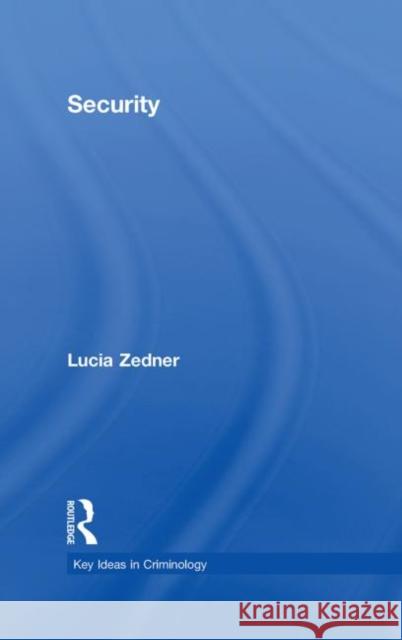Security » książka
Security
ISBN-13: 9780415391757 / Angielski / Twarda / 2009 / 206 str.
Security
ISBN-13: 9780415391757 / Angielski / Twarda / 2009 / 206 str.
(netto: 788,12 VAT: 5%)
Najniższa cena z 30 dni: 730,42
ok. 16-18 dni roboczych.
Darmowa dostawa!
Just a decade ago security had little claim to criminological attention. Today a combination of disciplinary paradigm shifts, policy changes, and world political events have pushed security to the forefront of the criminological agenda. Distinctions between public safety and private protection, policing and security services, national and international security are being eroded. Post-9/11 the pursuit of security has been hotly debated not least because countering terrorism raises the stakes and licenses extraordinary measures. Security has become a central plank of public policy, a topical political issue, and lucrative focus of private venture but it is not without costs, problems, and paradoxes. As security governs our lives, governing security become a priority. This book provides a brief, authoritative introduction to the history of security from Hobbes to the present day and a timely guide to contemporary security politics and dilemmas. It argues that the pursuit of security poses a significant challenge for criminal justice practices and values. It defends security as public good and suggests a framework of principles by which it might better be governed. Engaging with major academic debates in criminology, law, international relations, politics, and sociology, this book stands at the vanguard of interdisciplinary writing on security.
This important text provides a brief, authoritative introduction to the subject of security; a central plank of public policy, a topical political issue and a lucrative focus of private venture. It distils the main issues and provides an accessible digest of the growing literature on security, engaging with all the major academic debates. Serving simultaneously as an introduction to the concept of security in all its sundry forms, and as a timely reflection upon its significance, implications and dangers, the book subjects security to rigorous critical analysis and proposes normative bases for its governance.
Ideal for postgraduate and undergraduate students of criminology, sociology and politics, this significant contemporary volume is at the vanguard of criminological writing on security.











